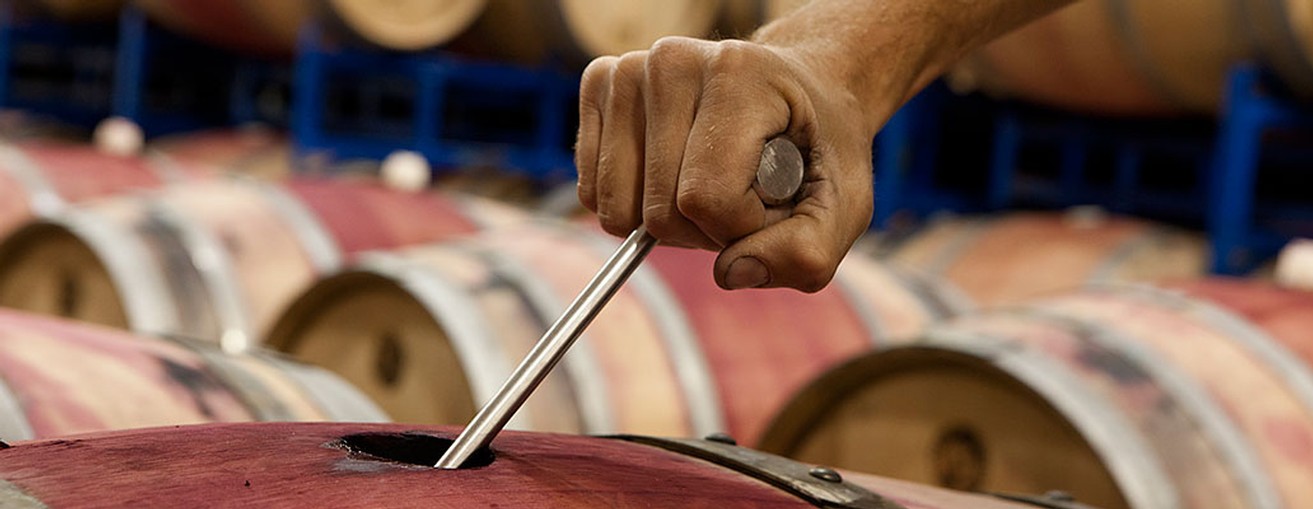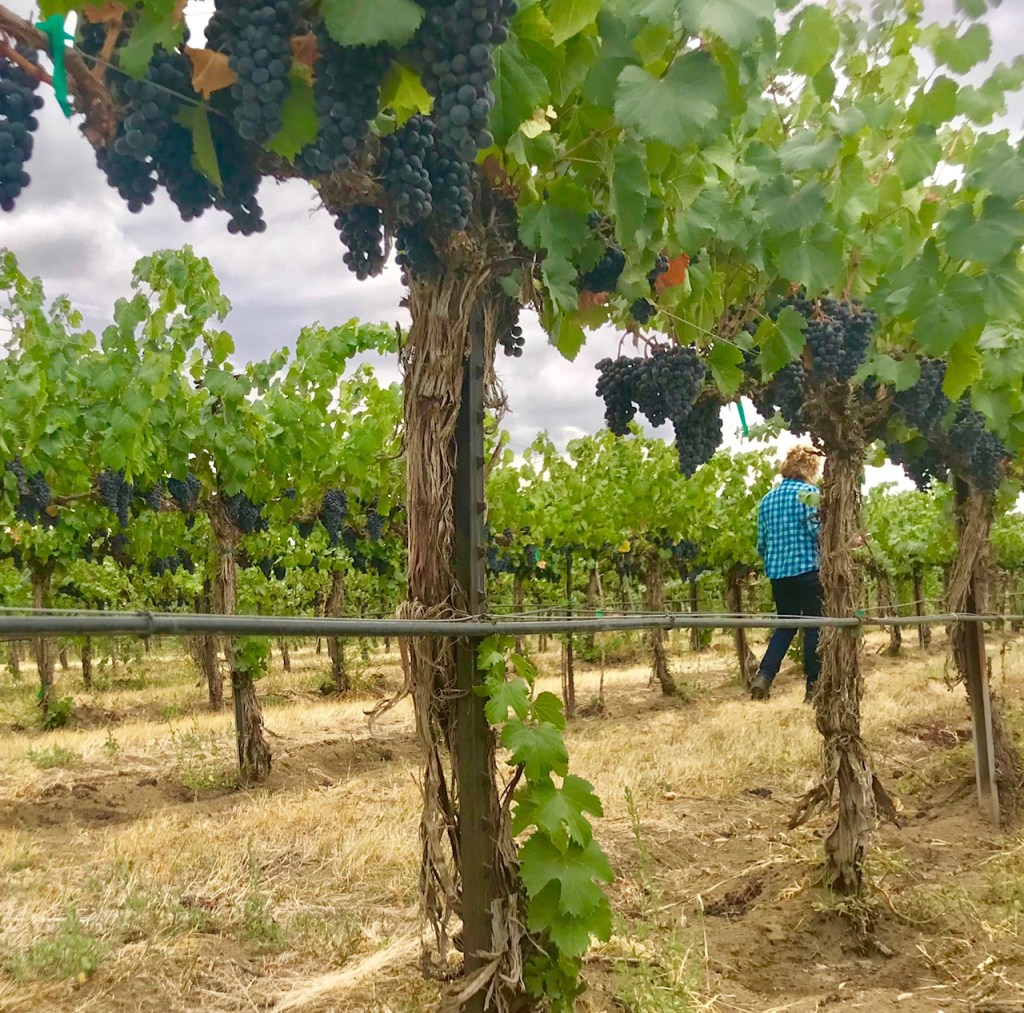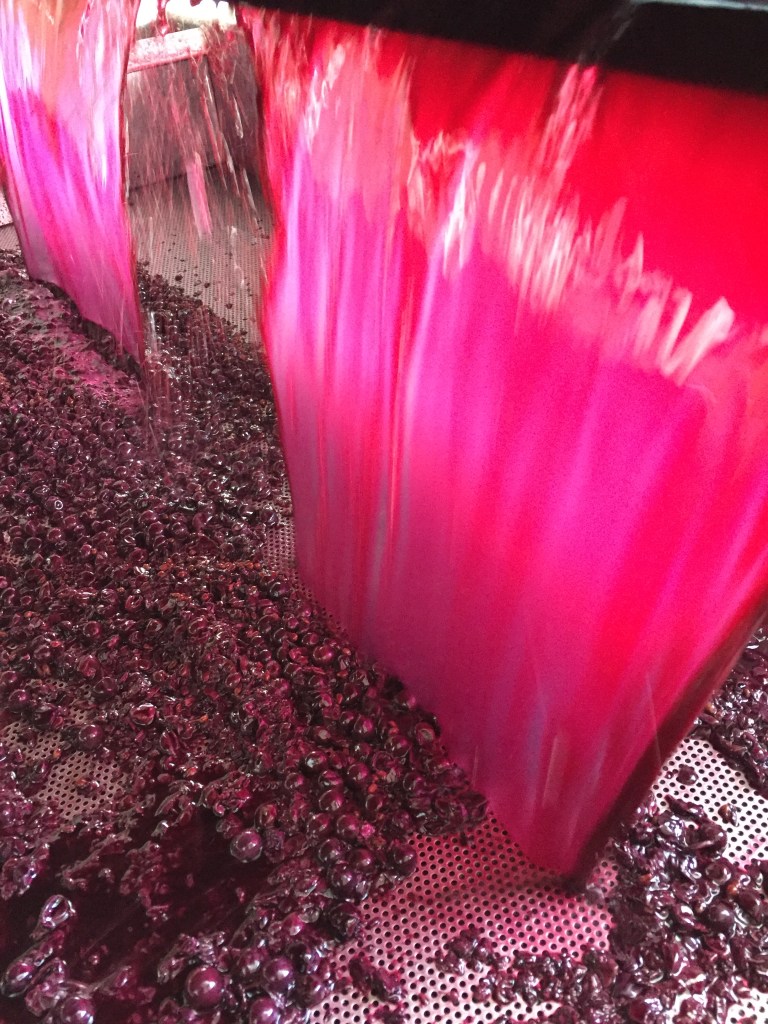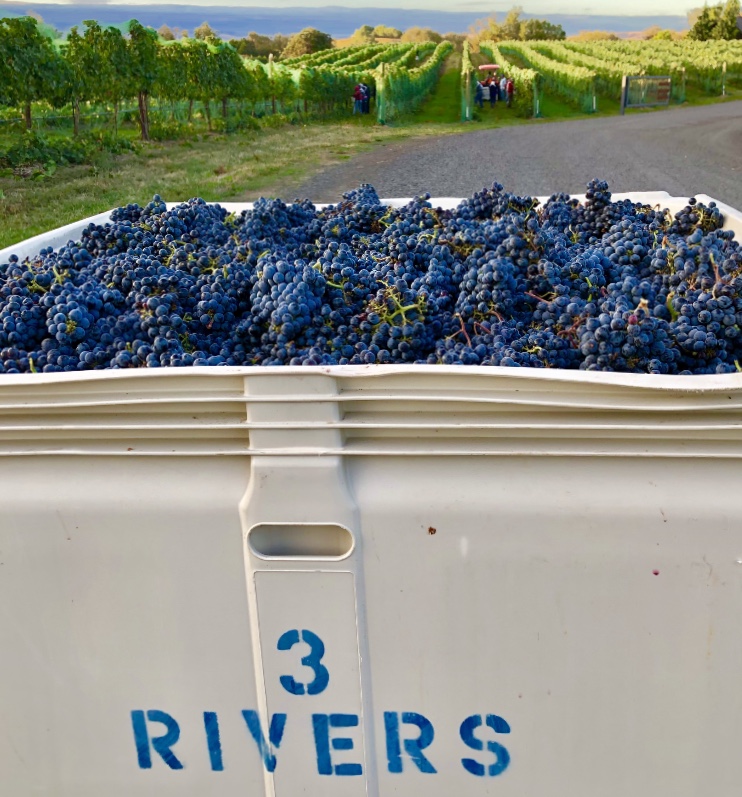
Winemaking
Our winemaker, Holly Turner, knows that great wines are made in the vineyard. She does everything possible to work with the vineyard owners to produce premium grapes.

Terroir
Winemaker Holly Turner has been fortunate to have worked with fruit from nearly all parts of the vast Columbia Valley Appellation, thus developing a winemaking philosophy which is well suited to our area.
Each growing area in the Columbia Valley has its own unique characteristics that contribute to making the wines distinctive. The French use the term “terroir,” which refers to the factors at each growing site that contribute to making the wines unique. These factors include the soil type, irrigation management, canopy management, cropping levels, and overall climate. Occasionally, the grapes from an individual vineyard will be of such superb quality that they warrant being bottled separate from other vineyards to showcase the resulting wine.

Wine Blending
Holly strongly believes that the blending of grapes from several different vineyards will most often result in the most superb wines possible. At Three Rivers Winery, we utilize blending to maximize wine quality whenever warranted.
Blending of wines is analogous to cooking with herbs. When used alone, fresh herbs can enhance the flavor of most foods, but when several herbs are used in combination they can result in a superb culinary dish.

The Best Fruit
Three Rivers sources grapes from many different areas within the greater Columbia Valley, including high-quality vineyards in the Walla Walla Valley and Red Mountain AVA. We continue to source grapes from a wide array of vineyards in several diverse geographic zones to deliver the highest quality wines.
We source from the following vineyards:
ARTZ VINEYARD
Artz Vineyard is named for Fred Artz, a legendary grape grower on Red Mountain. Artz helped plant and manage the famed Klipsun Vineyard for more than 20 years before buying adjacent land and planting his own vineyard. The vineyard is planted on the lower bench of Red Mountain, overlooking the Yakima River at an elevation of 652’ facing southwest. The predominant soil types of Red Mountain are Warden, Hezel and Scootenay which are a series of wind-blown loess. This variety of soil presents a combination of sand, silt and loam which are exceptional for growing grapes. Artz Vineyard is now owned by Red Mountain pioneers, the Willams family.
BACCHUS VINEYARD
Bacchus Vineyard was rst planted in 1972, aptly named after the Roman god of wine. With nearly half a century under their belts, the
team at Bacchus, led by Lacey Lybeck, has been instrumental in the growth of the Washington State wine industry. Located on the east side of the Columbia River, 15 miles north of the Tri-Cities, Bacchus has a commanding view to the west overlooking the mighty Columbia River and the Rattlesnake Mountains. e sloping land’s elevation ranges from 550-900 feet, and soft rolling knolls keep Bacchus warm (not hot, not cool) with excellent air drainage. No wonder this unique place produces a cadre of beautiful fruit.
SUNSET BENCH VINEYARD
Sunset Bench Vineyard in the Red Mountain AVA recently joined the Kiona Vineyards portfolio and serves as our primary site for Red Mountain Malbec. Located just west of Ranch at the End of the Road, this newer vineyard shares many of Ranch’s desirable traits, including aspect, slope, and southwestern exposure. The predominant soil types of Red Mountain are Warden, Hezel and Scootenay which are a series of wind-blown loess. This variety of soil presents a combination of sand, silt and loam which are exceptional for growing grapes.
LES COLLINES VINEYARD
Named Les Collines after the French meaning ‘the foothills’, this vineyard lies at the base of the Blue Mountains in the Walla Walla Valley AVA. LIVE Certified Sustainable and Salmon Safe, Les Collines has made a commitment to be good stewards of the land. Its relatively high elevation (1140’-1370’) results in warmer morning low temperatures, creating one of the longest growing seasons in the Walla Walla Valley. Classified as deep to very deep soils with large water holding capacity and average yearly precipitation of 20 inches, irrigation requirements for Les Collines are minimal, which makes this a special place for growing grapes.
HEART OF THE HILL VINEYARD
Red Mountain is the smallest appellation in Washington State and one of the warmest with broad, southwest facing slopes near Yakima River. Lacking in rainfall and soil nutrients, you would think this were an inhospitable area to grow anything. But grapes love this place and so do we. Situated in the very middle of the AVA, Heart of the Hill Vineyard has quickly developed a reputation as a power player on Red Mountain. The fruit from Heart of the Hill produces deep, brooding and assertive wines. The Merlot planted here in 2009 by the Williams family has shown that it’s got star quality.
PEPPER BRIDGE VINEYARD
Pepper Bridge Vineyard is in the center of the Walla Walla Valley, providing the vineyard site with deep soil deposited by ancient flood waters that passed through the area eons ago. The soil type is Walla Walla Silt Loam, which consists of windblown glacial loess and silt deposited from the flood waters. The vineyard is “LIVE” and “Salmon Safe” certified, adhering to rigid sustainable farming practices that are third party certified. Precipitation will average 12-15” of rainfall, occurring almost entirely in the winter and spring months.
RIVER ROCK VINEYARD
Within the Walla Walla Valley AVA lies e Rocks District of Milton-Freewater AVA. The distinguishing feature of the Rocks District
is its soil, which consists primarily of dark-colored basalt cobblestones. Syrah accounts for almost half of the planted vineyards (45%), and Cabernet Sauvignon is second (24%). River Rock Vineyard was originally planted with Syrah and Viognier in 2000, but subsequent plantings of Cabernet, Grenache & Merlot have been added. This vineyard is one of the original Rocks District plantings by Dana Dibble, 3rd generation orchardist turned viticulturist.
SEVEN HILLS VINEYARD
The original vineyard and heart of SeVein, Seven Hills, was one of the first commercial vineyards in the Walla Walla Valley AVA. Seven Hills Vineyard was first planted in 1980 and then expanded in 1989. With an elevation of 850’-1,050’ the site has excellent soil and air drainage and is one of the most technologically advanced in the industry. Seven Hills Vineyard is part of VINEA who partners with “LIVE” in Oregon to provide third party sustainable certification through the European organization IOBC. With focus on soil biology and vine health, they farm using minimal inputs and earth-friendly environmental practices. With an average annual rainfall of 7” they utilize high tech moisture monitoring systems to control growth and vigor. Managed by Sadie Drury, the 2020 grape grower of the year.
SUMMIT VIEW VINEYARD
Summit View Vineyard was developed in 2009 on 140 acres of hillside above Seven Hills Vineyard. The vineyard sits atop of the SeVein Property, in the Southwest corner of the Walla Walla Valley AVA, on a north slope aspect, at an elevation of 1200’. This provides great air drainage, resulting in mostly frost free conditions, reduced disease pressure, and is one of the warmest vineyard sites in the Northwest. The soil is predominately Ellisforde Silt Loam, which is wind-blown glacial Loess. This lays atop the fractured basalt of the hill structure. The soil depth ranges from 12” at the top of the hill to 6-8’ at the bottom. This soil type is geologically very young, but nutritionally very rich and has excellent drainage.
